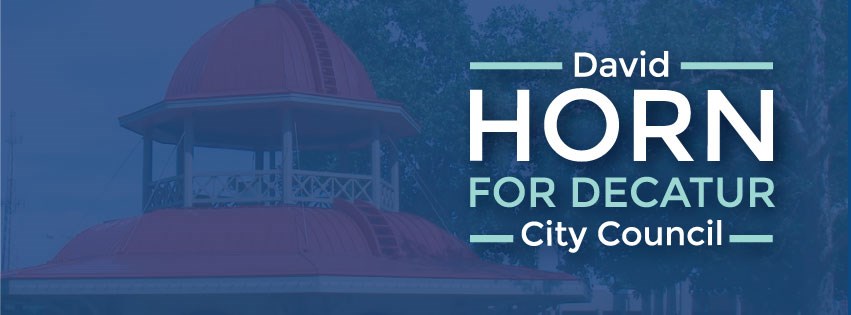
Annexing properties into the city of Decatur - Why the city is annexing properties and the concerns our newest citizens are expressing
THE CITY’S MOST SIGNIFICANT CHALLENGE IS POPULATION DECLINE – Decatur has one of the fastest shrinking populations in the United States. According to the U.S. Census Bureau, as of April 1, 2010, the population of Decatur was 76,131 and as of July 1, 2018 the population was 71,290 (a decrease of 4,841 individuals, 6.4%).
Simultaneously, at the beginning of the annexation process in May, there were approximately 525 unincorporated properties that have water service agreements and that are or will be contiguous to the city, and thus ultimately eligible for annexation. Furthermore, there are some additional properties that are surrounded by the city, but are not incorporated, that can be annexed.
ALLOTMENTS OF FEDERAL AND STATE FUNDING ARE BASED ON THE POPULATION - Every resident of the city counted in the U.S. Census provides an allotment of federal funding estimated at $1,800 per person per year for social services such as food stamps, school lunches, home energy assistance, and some Medicaid programs. State tax allotments are also based on the number of residents with the city receiving approximately $170 per resident per year from sources such as state income taxes and motor fuel tax. Thus, the city’s population decline has a negative financial impact on state and federal funding necessary for city services.
Annexation of properties can also increase the city’s equalized assessed value. The city equalized assessed value has declined 11% from $928.5 million in 2009 to $824.5 million in 2018. Simultaneously, property taxes collected increased 23% from $11.2 million in 2009 to $13.8 million in 2018. Without annexation in 2019, the equalized assessed value may have gone down resulting in a higher tax rate for city property owners in 2020 to fund the tax levy.
In short, the more citizens the city has the more federal and state funding the city receives and the greater revenue available to fund public services.
CITIZENS BEING ANNEXED HAVE EXPRESSED SIGNIFICANT CONCERNS – Many individuals have contacted the city council about possible annexation. Among the concerns expressed are the higher property taxes of the city, the possible need to eliminate double taxation for fire services, differences in city codes compared to county regulations that may prohibit certain activities, and the loss of pre-existing relationships with road commissioners and volunteer fire departments. In addition, some felt insulted by the city offering a gift card to those that annexed within a shorter period of time than required.
Since annexation, some individuals have experienced difficulty in accessing city services. For example, at least one newly annexed property did not have snow removal after the snowstorm earlier this fall, and another had challenges receiving a recycling bin from the city. Initial impressions of our newest citizens are critical and the city must provide outstanding services to our current and newest citizens from day one.
VOTING TO ANNEX PROPERTIES IS A DIFFICULT ONE – The city council has received many heartfelt letters from individuals who are concerned about being annexed. Many individuals are retired and on fixed incomes, and higher property taxes may significantly reduce discretionary incomes. This is an unexpected added expense and one that may be difficult to mitigate. I will continue to be supportive of annexation provided that ultimately all properties with water service agreements that become contiguous with the city, or are surrounded by the city, become annexed.
BETTER SOLUTIONS TO FUND CITY SERVICES ARE THROUGH POPULATION GROWTH AND GROWTH OF NEW INDUSTRIES – Decatur needs ambitious initiatives to grow our population. A bold and aspirational plan for neighborhood revitalization will help strengthen connections current citizens have with our city and make Decatur more attractive to those individuals considering moving to central Illinois. In addition, the city should be open to new types of businesses, particularly those complementing Decatur’s strengths in agriculture and manufacturing. For example, the city can raise revenue and grow jobs by allowing cannabis-related businesses such as dispensaries, cultivation centers and processors rather than opting-out and having these businesses in adjacent towns.
